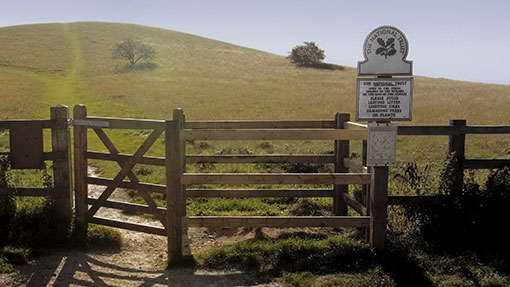TFA criticises National Trust’s tenancy management

A lack of accountability and expertise at local level is causing problems for farming tenants of the National Trust, says the Tenant Farmers Association (TFA).
In a joint letter to the trust’s chief executive, the TFA and Tenants Association of the National Trust (TANT), which represents residential tenants, said poor management at a local level and a lack of partnership with tenants was making it hard for people to meet the trust’s conservation objectives.
Farming tenants understood and appreciated the trust’s conservation focus, said George Dunn, chief executive of the TFA, but they were not being adequately supported in this and their on-the-ground expertise was not being used. Meanwhile local trust managers often lacked the knowledge and skills to make good property decisions.
See also: Five top tips for Farm Business Tenancy applications
The knock-on effect, said Mr Dunn, was that local trust managers were contracting out management to land agents, who did not appear to be properly briefed on the trust’s objectives and were particularly “hard-nosed” as a result in matters such as rent reviews.
“Discussions we have with TANT and the TFA are very helpful in understanding where progress needs to be made and we’ll be following up this letter in detail,” said Patrick Begg, the National Trust’s rural enterprises director.
“Discussions we have with TANT and the TFA are very helpful in understanding where progress needs to be made and we’ll be following up this letter in detail.”
Patrick Begg, National Trust
“We’re committed to developing ever better relationships and going beyond the transactional to developing true partnerships. We want to build from these while recognising that we don’t always get things right and that there’s always room for improvement.”
The charity, which has about 6,500 tenants (2,000 farm tenants) and protects more than 250,000ha, was also criticised for a backlog of repairs and maintenance on its tenanted properties.
This exacerbated conservation challenges, said Mr Dunn, for example farmers in need of livestock building repairs were forced to graze their stock outside for longer, to the detriment of pasture conservation. Response to tenants wanting to improve their businesses, such as setting up a bedand breakfast, was also slow, said the TFA.
The trust recognised the problems, said Mr Dunn and had been very open at a top level throughout talks. However, there was deep frustration that little appeared to have been done to rectify the issues and was the reason why the TFA and TANT had taken the decision to make the issue public.
“We both want to see positive, productive and purposeful relationships between the National Trust and its tenants,” said the TFA and TANT in a joint statement.
“We need to get some of the fundamentals right including ensuring the right personnel is in place with the right training and sufficient budgets to manage the let estate of the National Trust effectively.”
Tenants with any issues should keep records of communications with the National Trust, advised Mr Dunn.
